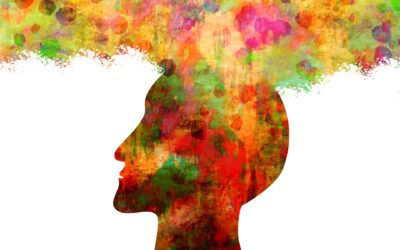How will mindfulness help my child?
Being a teenager is tough. External pressures to be popular or fit in often conflict with internal drives to seek independence and autonomy. This dichotomy and the very real difficulty teens have in balancing dependence and independence can contribute to the development of depression and anxiety.
As parents, we are constantly looking for ways to support our teens in making healthy choices for themselves but are also willing to provide hands-on guidance when necessary. Encouraging the practice of mindfulness may provide opportunities to do both. In practice, mindfulness encompasses several different techniques designed to help foster a moment-to-moment awareness of our thoughts, feelings, and surroundings. It specifies that our exploration of these features is gentle, non-judgmental, and nurturing. By supporting our children in practicing mindfulness, we can encourage movement towards healthy emotional responses to the natural and unavoidable stress and distress that life will present.
Here are five ways that encouraging mindfulness in our children, and practicing it with them, can have positive effects on their mental health:
1- Mindfulness is not about needing to control things; it is about accepting things out of our control
Teenagers can especially appreciate this. They do not get to decide if they have to go to school; they usually can’t even choose the majority of their classes. They cannot choose where they live; they often do not even choose what they have available to eat. Through practicing mindfulness, teens have the opportunity to recognize the frustration inherent in this perceived lack of choice and permit themselves to let go of those frustrations. More often than not, there is nothing that they can do about their situation. Mindfulness allows teens to recognize when that is true and helps them through the process of acceptance and letting it go.
2- Mindfulness supports deliberate decision making
As they move through adolescence, there are usually more than a few times that we wonder about our children: “What were you thinking?”. The reality is that teenage brains function differently than adult brains. Studies show that teenagers are more likely to act impulsively than both younger and older age groups. To combat that impulsivity, they have to engage the brain’s pre-frontal cortex or “brake system” more actively.
“Urge Surfing” is a mindfulness technique that focuses on recognizing the impulse to do a thing and sitting with that impulse without judgment but also without giving in. Generally, in a short amount of time, that impulse will become less intense and then pass. Mindfulness practice takes place over time, and that time is a teenager’s best friend when it comes to making better decisions. Better decisions generally lead to better outcomes with less regret or anxiety afterward.
3- Mindfulness increases the appreciation of good things
A talk with a good friend. The smell of a newly-cut lawn. A delicious spoonful of breakfast with the perfect cereal-to-milk ratio. All of these tiny, positive moments might happen in a day, and by encouraging mindfulness, we can help our children recognize and appreciate them. Recognizing the positive features in life can help direct our children away from black and white thinking and towards a more balanced and realistic view of the world.
Teens can experience positive moments that occur amid a seemingly overwhelming negative experience. For example, even if they are in the middle of a huge fight with their best friend, they might have a small win like eating their favorite dinner. Even when they are overwhelmed by the stress of looking for a job, they can enjoy participating in sports. These small wins can easily be, and often are, overlooked or drowned out by their negative counterparts.
By deliberately practicing being present in a positive moment more fully, teens engage in behavior that challenges the all-or-nothing self-talk associated with depression and anxiety.
4- Mindfulness can reduce acute stress
When given time, mindfulness techniques have been shown to result in a significant decrease in stress levels. This is especially important given the close connection between stress and depression.
If not managed effectively, chronic stress can lead to depression, so helping our kids mindfully address stressful situations may protect against developing depression. When our children respond mindfully to stressful situations, they can separate the things they can change and those out of their control. They can then effectively utilize a stress response to make needed adjustments instead of internalizing a less productive and more debilitating anxiety response.
5- Mindfulness can improve the parent-child connection
We often view our adolescent children as impulsive and not as thoughtful as we wish they were, but do we ever consider our own behaviors in that same light? As we age, we become less impulsive and hopefully more aware of how our actions affect those around us, but this is not always the case, and it can be hard to recognize where we might fall short.
By practicing mindfulness and allowing ourselves to reflect without judgment on our lives, we might encounter areas where we want to change. We will also discover aspects of our lives for which we need to provide ourselves with forgiveness and acceptance. In thinking of our past, what things do we hold on to that are neither beneficial nor healthy?
The process of exploring and forgiving is in direct opposition to the patterns of anxiety and depression. It embraces the unknown and the reality of learning from mistakes. In contrast, patterns of anxiety and depression lead us to shrink in fear from uncertainty and give us a static concept of behavior.
By demonstrating a willingness to explore our thought processes and our relationship with the world, we can support the same in our children. Practicing mindfulness together can provide a platform to talk about feelings of anxiety and depression, which may combat the strength of both.
Conclusion
Encouraging your teen to practice mindfulness, and doing so yourself, can have tremendous benefits. It is a free and self-directed technique that can be used anywhere and in any situation. Mindfulness promotes a more balanced acceptance of life as it unfolds and combats depression and anxiety by making room for exploration and forgiveness.
As parents, we can help our teens and young adults practice mindfulness by demonstrating it ourselves and holding time and space open for its use in their lives. With practice and patience, mindfulness can become a powerful tool that they can use to combat feelings of depression and anxiety in their lives. T
here is a reason mindfulness is recognized as a “practice”- we need to engage in it to become better at it. I encourage you to support your children in adding mindful practice to their daily skill set. And I hope that they someday take a mindful moment to thank you for it.
Source information:
Centre for Mindfulness Studies: https://www.mindfulnessstudies.com/mindfulness/evidence/?gclid=CjwKCAiA1aiMBhAUEiwACw25MU7dIrt7uD2lqFC6_TsUKdbvjYXrYaLwkXVFrLdcgucAX89EhoN0rxoCNHQQAvD_Bw
Science: https://www.science.org/content/article/why-teenagers-are-so-impulsive-rev2
Harvard Health HelpGuide: https://www.helpguide.org/harvard/benefits-of-mindfulness.htm
Annals of Psychiatry and Mental Health: Chronic Stress leads to Anxiety and Depression: https://www.jscimedcentral.com/Psychiatry/psychiatry-5-1091.pdf









